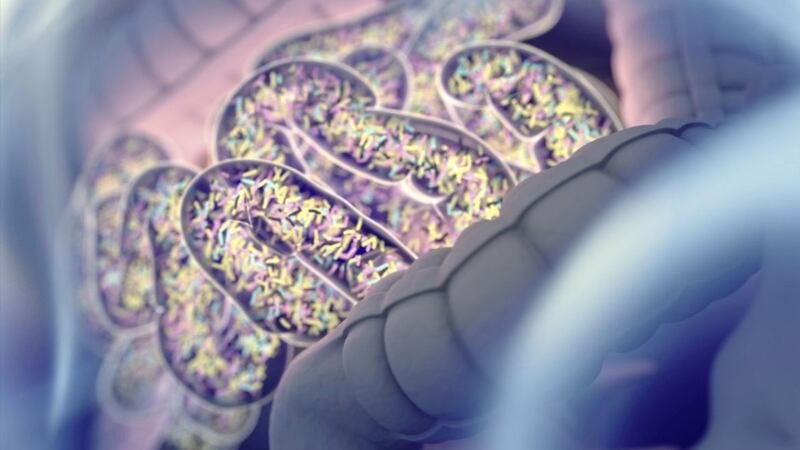YOUR body is home to trillions of bacteria that live happily in your digestive tract. The more you do to look after them and make them feel welcome, the happier they will be and the more your health will benefit.
We know that by looking after these bacteria and eating in a way that maintains a healthy neighbourhood of bugs in our microbiome impacts upon the health of almost every part of our bodies.
From our minds and our brain health to cardiovascular function, immunity, hormone balance, weight management, insulin resistance and, not forgetting digestion of course, these microbes are hardworking residents of your body.
A possible link with Covid-19?
But there is something else. New research suggests that our microbiome could play a role in Covid-19. Although there is still a lot we don’t understand about why some of us are more adversely affected by the disease that others, and why some people go on to develop long Covid, one of the clues scientists are following is the balance of bacteria in our microbiome.
A few small-scale studies are pointing to the possibility that an imbalance of gut bacteria and an absence of probiotics (beneficial bacteria) is more prevalent in Covid-19 patients, but also that this imbalance links with disease progression and severity.
This makes sense, as there is a well-known connection between the health of our gut microbiome and development of respiratory illness. Flu and pneumonia have been linked with certain microbes in our gut and an imbalance of our friendly probiotic bacteria.
Gut bacteria modulate the immune response and influence inflammation within our bodies. There is plenty that can knock this delicate balance or gut flora. Ageing, illness and weight gain are linked with less diverse and a less healthy balance of bugs.
Feed your gut
The food you eat every day not only has to feed you, but it is also fuel for these little bugs that impact the health of your body and mind. Our friendly bacteria thrive on the same foods that we do.
The more variety in our diets, and the more natural, unprocessed, nourishing foods we eat, the better we feel and the healthier the balance of bugs in our microbiome.
A diet packed with plant foods (vegetables, fruit, whole grains, nuts, seeds, pulses) and low in processed junk food supports a more diverse, happier and healthier balance of bacteria in our digestive tract that has health benefits for our whole body.
These foods act as prebiotics – food and fuel for our probiotics.
30 a week
The American Gut Project looked at more than 10,000 stool samples from populations across the world and discovered that people who ate at least 30 different types of plant-based foods a week had a more diverse mix of gut microbes than those who ate less than 10.
Of course when we think plant foods, we think fruit and veg, but this includes pulses, whole grains, nuts and seeds too.
The more varied your diet, the more diverse the bacteria in your gut.
Fermented foods
Ferment foods such as kimchi, sauerkraut, kombucha, kefir and miso also provide our body with a little hit of healthy microbes who can set up a happy home in our gut.
If you – ahem – never tried these foods before, give them a go. Most supermarkets now stock kefir and kombucha and you can even try your hand at making your own sauerkraut or kimchi.








